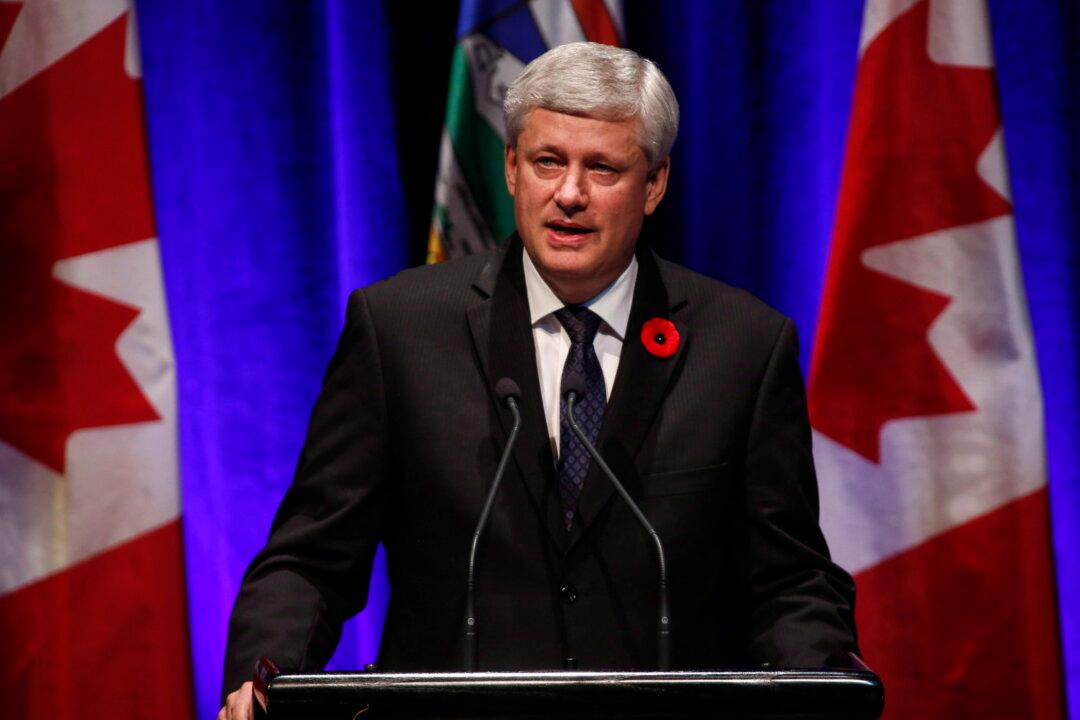China’s technology apparatus is geared to do the very things that alarm western democracies about big tech, former prime minister Stephen Harper told attendees at a defence and security conference on March 12.
“The biggest single concern that Western citizens … have about big tech is about power. It’s about privacy, it’s about surveillance, it’s about the use of personal data,” Harper said, speaking at the Conference of Defence Associations Institute’s Ottawa Conference on Security and Defence in a keynote discussion with his former national security adviser Richard Fadden.
“The entire Chinese technology system is designed for that purpose.”
Harper said he’s not against Chinese consumer products, but that Beijing should not be allowed to have its technology at the core of the systems of Western democracies.
He spoke of the double edged sword that tech is: while it increases what humans can achieve in a number of ways, it can also be used as an instrument for authoritarianism.
Harper touted his efforts as prime minister to put in a national security review for foreign investment coming into Canada. He said China’s resource demand has benefited Canada, but warns there are always risks from the “hegemonic side.”
Specifically, the Chinese regime’s interest in data and technology is more problematic than its interest in the oilsands or rare earth minerals, he said.
The two Chinese telecommunications giants Huawei and ZTE had penetrated Canada long before they caught the attention of the Five Eyes intelligence alliance, Harper noted.
“These companies may be private companies in form, but in practice they are extensions of the Chinese state security apparatus. It’s that simple,” he said.
Canada is the only member of the Five Eyes to have not yet banned Huawei from its 5G infrastructure, or not have a plan to phase it out, in the case of the UK.
Tech integration with China is incompatible, Harper said.





